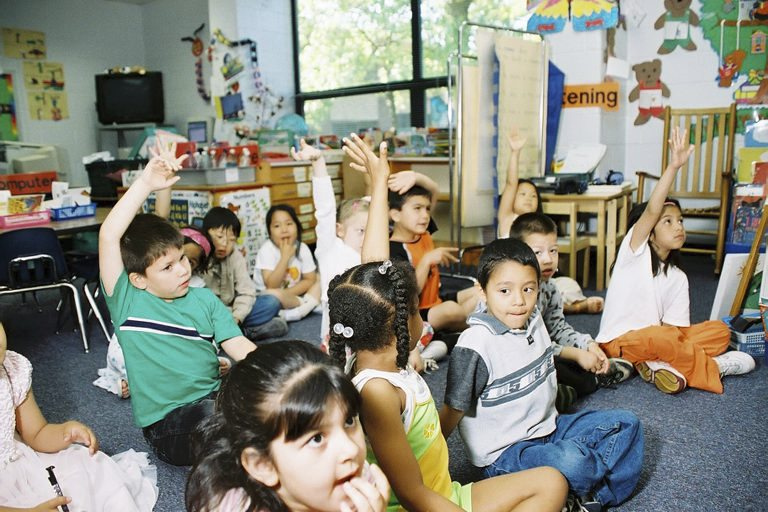In a recent review published in the National Association of School Psychologist’s School Psychology Forum, Amanda VanDerHeyden addresses patterns of outdated practice in the field of school psychology despite an increase in effective, feasible, evidence-based alternatives. First examining the specific learning disability (SLD) classification category through a critical lens then considering popular practices lacking empirical support, VanDerHeyden calls for change within the US education system.

VanDerHeyden, who has worked as a researcher, consultant, and trainer in a number of school districts and is an associate editor for School Psychology Review, exposes the problematic gap between the knowledge acquired from assessing students and the provision of support to students. She also draws attention to the potential risks associated with assigning labels in the absence of quality school-wide instruction and service. In many instances, interventions found to be effective in small, homogenous samples of students are generalized to support diverse populations, and greater attention to effects and the appropriateness of school-wide interventions to improve students’ experiences in schools is needed.
According to VanDerHeyden, the specific learning disability (SLD) classification has been assigned as a catch-all for students with a range of achievement delays since its origin in the 1970s. When a student demonstrates difficulty in reading or mathematics and neglects to fit perfectly into another classification category, it is not unusual for that student to receive an SLD label. Despite concerns surrounding the validity of the SLD classification, and questions about the extent to which it represents student achievement deficits vs. instructional deficits and schoolwide weaknesses, it is applied liberally on a national level.
“SLD diagnoses skyrocketed even as scientific study after scientific study emerged underscoring fundamental flaws in the construct and poor outcomes for students who received the SLD label,” VanDerHeyden writes.
Recent years have seen a movement towards the adoption of multi-tiered systems of support (MTSS), characterized by increased schoolwide academic and socioemotional initiatives as opposed to classification and individualized support plans. General improvement of instructional quality and behavioral support reduce patterns in excess classification.
However, despite tremendous empirical support for response to intervention (RtI), MTSS, and the practice of assessing and responding to student patterns of strength and weakness instead of testing for innate deficits, many school psychologists cling to outdated labels and interventions. In some states, cognitive assessment has been excluded from use in disability determinations, yet this approach is used in abundance in others.
“Practicing school psychologists are optimistic that their efforts may work, and optimism is useful, but continuing to hope that a treatment with little evidence will eventually work is a practice habit that is costly and diminishes the overall efficacy of school psychology as a profession,” she writes. “This habit seeps into our training programs, and students emerge having been trained to conduct practices that are of little or no demonstrable value to children.”
VanDerHeyden’s primary explanation for school psychologists’ continued implementation of outdated programs is not that evidence-based, feasible, schoolwide supports aren’t available, but instead, “because they were trained to do so.” Universities and trainings have not caught up with overwhelming research challenging traditional classification and intervention models.
The best and most efficient support for the greatest number of students is accomplished by adjustments to social and academic learning environments instead of individual student characteristics. VanDerHeyden suggests school psychologists must:
- Show up
- Know the right combination of ingredients to facilitate the right conditions to ensure effective intervention
- Know how to employ (or train others to implement) evidence-based interventions
- Know how to sustain an intervention until effects are meaningful and lasting
Because it can be extraordinarily overwhelming for newly-trained teachers and psychologists to enter into complex, dysfunctional school systems and inform meaningful change, many of the best-trained candidates seek employment in schools that are already high-functioning. Component one above is critical because, in many schools ripe for a paradigm shift, qualified psychologists aren’t showing up. Students vulnerable to exposure to higher rates of poor instruction, conflict and violence, social and emotional turmoil, and trauma, may be more likely to be labeled or receive diagnoses, but no more likely to receive supportive accommodations that they would have been otherwise due to outdated patterns in practice.
Significant variation in teacher ability to accommodate student needs contributes to the importance of quality management with regard to social, emotional, and instructional practice, and school psychologists are in a unique position to fulfill the need for improved management. However, if training is discrepant with current research, focusing on interventions for individuals and small groups, and if talented school psychologists aren’t thinking outside of the box to marry research and practice, schools will continue to cling to outdated methods solely because that’s what has been done in the past.
****
VanDerHeyden, A. (2018). Why Do School Psychologists Cling to Ineffective Practices? Let’s Do What Works. School Psychology Forum, 12(1), 44-52. (Link)















Interesting that caring about the needs and context of the student’s experience doesn’t seem to make the list of important counselor qualities. Let’s be honest, the whole idea that you can “assess” a child and label them provides excellent cover for continuing ineffective classroom and schoolwide practices. Maybe we should keep it simple and just work on teaching each child in the way s/he needs and leave all the “assessment” and “evidence based practices” to those with too many degrees to play with?
Report comment
Classrooms are way too big! Take the money that is blown on speed/counselors/child psych quacks for restless kids and spend it on more teachers and aides. A lot of bored, restless kids are that way because the lessons are BORING and they’re so smart the teacher gets frustrated with them.
I learned my lessons halfway through the class and got bored. I would daydream and the teacher would get mad. How dare I learn faster than the other kids?
After a semester of SBD classes I came down with mono and became very depressed. School was depressing. Trying to dumb me down to fit.
Later, when stuck in the MI System, I frequently had nightmares I had been sent back to second grade as a 30 something adult. When I asked if I could advance or graduate the Teacher would yell at me or laugh patronizingly.
Now the nightmares have ended. 🙂
Report comment
Agreed. We can see where “evidence based practices” got us who are labeled as the “mentally ill”. I also agree that they need to quit worrying about assessing students and just meet the kids where their needs are. You don’t have to be a psychologist nor have lots of fancy degrees and training to be able to do this. You just have to love people and you have to care about doing your best for them.
Report comment
“Universities and trainings have not caught up with overwhelming research challenging traditional classification and intervention models.”
I agree, it is absurd that the universities are still teaching DSM diagnosing, given all the DSM disorders were declared to be scientifically “invalid” over five years ago.
https://www.nimh.nih.gov/about/directors/thomas-insel/blog/2013/transforming-diagnosis.shtml
And I’d love to see the grown adults from the “mental health” industry end their mass DSM defamation, drugging, torture, and murder of our country’s children.
As one who was forced to take my children out of the public school system after 8th grade, because the public schools are “not equipped to deal with the children who get 100% on their state standardized tests.” I absolutely agree, improvements in the school system are needed much more than the continued defamation and drugging of all the children.
I also hope the school social workers will some day learn that trying to drug the intelligent children, because the schools are not equipped to teach them, is not rational behavior. But it does make the school social workers look like insane people.
Definitely, it’s long past “time for a paradigm shift in school psychology interventions.”
Report comment
As a former high school teacher I’m beginning to wonder if psychologists should even be part of the school situation. About all they seem to do is point out students that should be drugged for supposedly having ADHD. I wonder how often they discover students who’re are being abused at home. I don’t hear much about that at all, only this ADHD stuff. They’re supposedly part of the school system to help students but I think they’re hindering and harming students instead.
Report comment
Screen door on a submarine! Guidance counselors in high school are supposed to help kids pick out colleges or apprenticeships. Now they probably hand out drugs like pez candies too.
“Hey Jimmy. You ever considered a career in mental health? No, not a psycho-therapist.
“You could be a lifelong mental patient/test subject for drugs. The pay isn’t great–for you anyhow. But it’s a necessary field. How else can poor Dr. Quackenbush make his yacht payments?”
Report comment
LOL! At one time, at least when I was in high school, Guidance counselors were not psychologists. And you’re right, they helped you with career choices, college choices, arranging to take the ACT and things like that. You could go to them and talk if you had a big difficulty in your life but they didn’t patrol the hall, looking for people to harass. They refereed between students and teachers when said students and teachers had disagreements with one another. And if you were having a really tough time and it was seeable to them they called you in and gave you a chance to talk if you so desired. It doesn’t seem that this is what they do today. They seem to go around hunting for people to diagnose and label. They seem to spend more time these days making referrals to psychiatrists so that kids can be drugged. They need to be thrown out of schools, period.
Report comment
School psychologists are not school counselors, and school counselors are not school psychologists.
Report comment
As a former teacher I see very little need for psychologists to be in schools. I do see the need for good counselors. Psychologists are too tied up with the “mental health” system these days and we don’t need our students getting involved with that.
Report comment